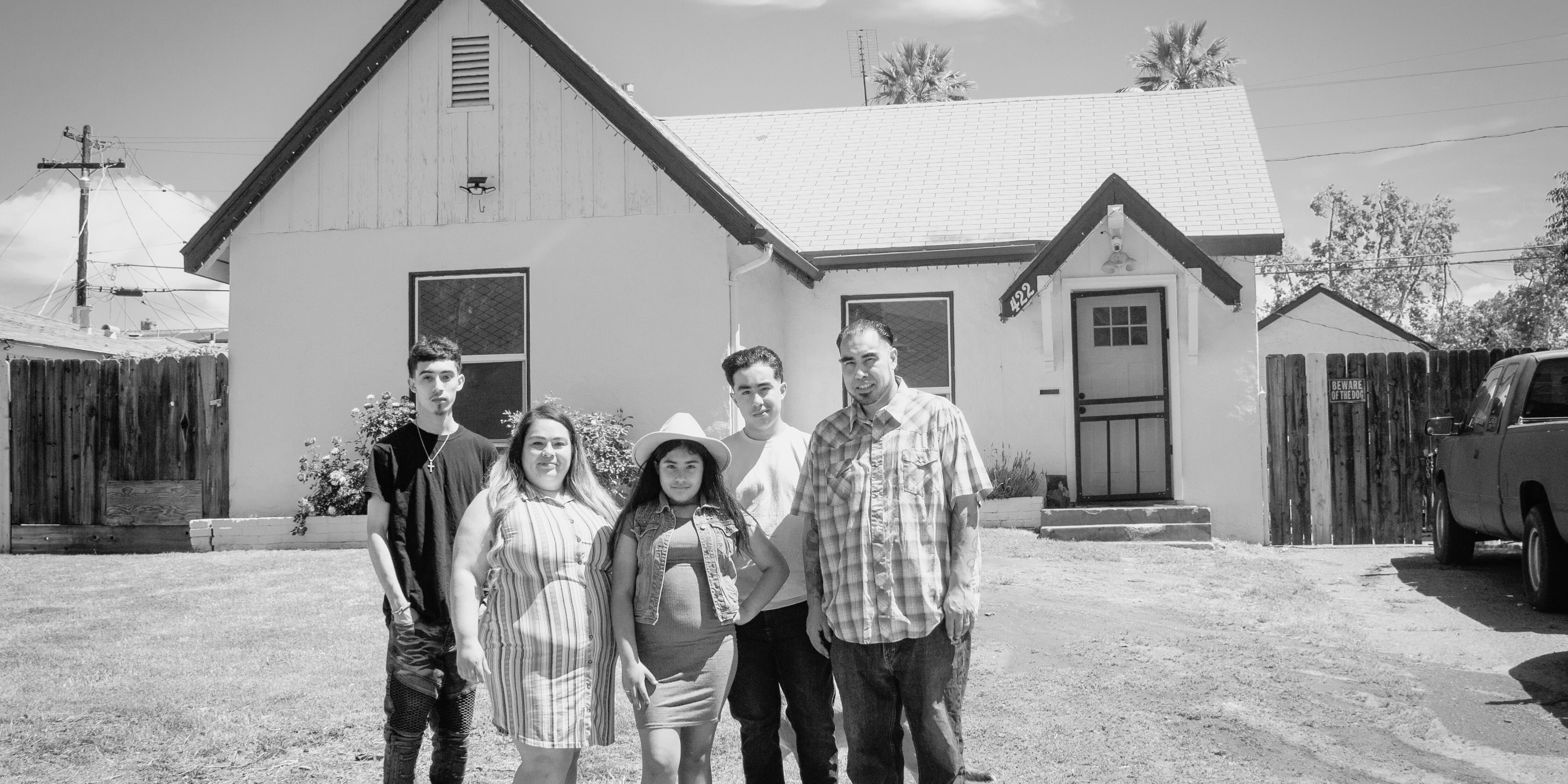“Lowell CDC came to existence out of a movement of neighbors and stakeholders who cared and wanted to see something change.” — Esther Carver, Executive Director of Lowell Community Development Corporation
As one of the first suburbs built north of downtown Fresno in the early 20th century, the Lowell neighborhood flourished as a mixed-income community. However, the trajectory shifted with the announcement of the 180 freeway development in the 1960s. The freeway’s construction did not occur until the 1980s and 1990s, precipitating an exodus of residents who had the means and opportunity to move to better places and leaving behind those with limited access to resources.
Vacant houses attracted investors who converted the homes into multi-family complexes. Other houses were torn down and replaced with large, poorly designed apartments. Today, Lowell is one of the most densely populated areas of Fresno, and many residents live in dilapidated rental housing.
Recognizing the potential within their neighborhood, Lowell residents began organizing nearly two decades ago and formed the Lowell Neighborhood Association. They advocated for improvements like a community garden, code enforcement, and street sweeping. These grassroots efforts, rooted in recognizing the inherent strengths and resources within the community, laid the foundation for the inception of Lowell Community Development Corporation (Lowell CDC) in 2011.
“As the residents continued to dream and work towards the betterment of the community, they desired to build an organization that could really get to the root of some of the issues,” explained Esther Carver, Executive Director of Lowell CDC.
“A lot of the things that came up, whether it be education, safety, or homeownership, it all was rooted in housing. Why are kids not at reading rate and not able to thrive in school? Well, there’s housing insecurity. That’s how Lowell CDC came to existence, out of that movement of neighbors and stakeholders who cared and wanted to see something change.”
Over the past decade, Lowell CDC has bought and rehabilitated several single-family and multi-family properties. In partnership with the Fresno Housing Authority, they’ve brought 30 units of affordable housing to Lowell. The organization also facilitates pathways to homeownership, including by flipping single-family homes that they hold for their renters to have the opportunity to buy.
Community Vision’s history of partnership with Lowell CDC dates back to the organization’s early years, providing initial financial management training and other support. Last year, Lowell CDC participated in CalCORE for the second time, joining Community Vision and Genesis LA’s cohort-based program designed to support emerging community developers across California.
In the cohort, Lowell CDC primarily focused on their project to transform a long-vacant commercial building into their offices, community space, and rental space for a local organization. They also worked on their plans for a residential building that will supply four additional units of housing.
“I appreciate Community Vision having relationships statewide and bringing me in as an organization,” Carver said. “They’ve introduced and created a space for co-learning while also still keeping that mentorship there. That has been really helpful.”
One of Lowell CDC’s initiatives that Community Vision’s consulting team has been supporting is their partnership-driven approach to tiny home development. Along with Southwest Fresno Development Corporation and South Tower Community Land Trust, Lowell CDC is leveraging partnerships with local nonprofits and churches to provide tangible housing solutions and catalyze policy changes in the city.
Embracing a mindset rooted in sharing knowledge and learning from others, Lowell CDC’s vision for community-led development extends beyond its neighborhood borders.
As Carver shares, “We’re constantly looking for the holes that aren’t filled by our current housing ecosystem and finding creative ways to fill those holes. I remember when I was hired, the board said to me, ‘If it works well here in Lowell, it could work in another neighborhood.’ We want to make sure that whatever we do, we learn from it, and then it can be replicated.”
This story was featured in our FY23 Annual Report. Read the full report here.





